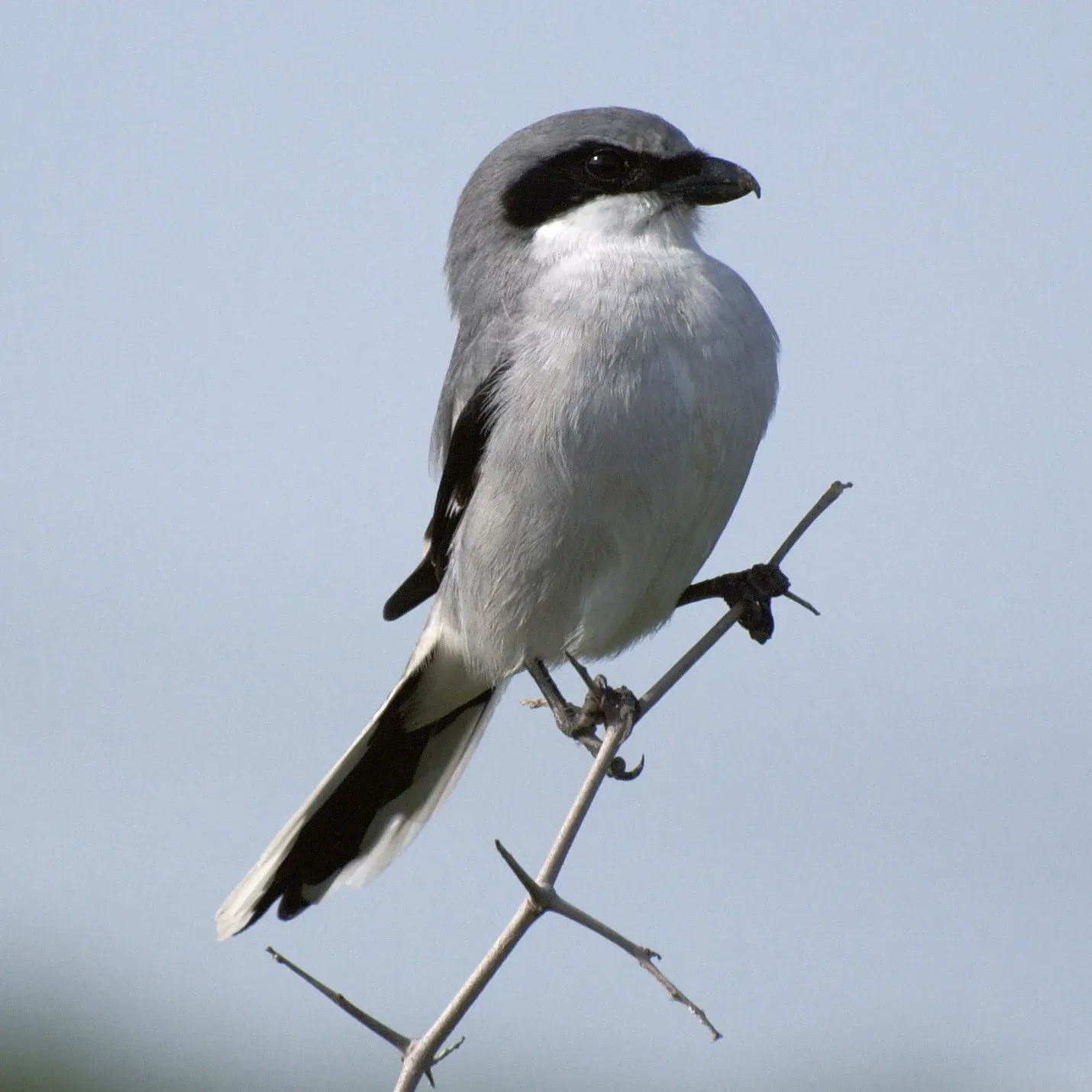
Loggerhead Shrike
Loggerhead Shrike
100
14 hours ago
Not yet spotted on Fladder
Spotted
The Loggerhead Shrike is a distinctive predatory songbird found across North America. Known for its 'butcher bird' habits, it impales prey on thorns or barbed wire. It inhabits open grasslands and savannas, easily recognized by its grey, black, and white plumage and black mask.
Where to spot
Widespread across North America, breeding from southern Canada through the central and western United States. Winters in the southern U.S. and Mexico. Favors open grasslands, shrublands, agricultural areas, and savannas with scattered thorny bushes.
How to spot
Look for it perched prominently on a thorny bush, fence post, or utility wire, scanning for prey. Its grey head, black mask, and contrasting black and white wings are key identifiers. Look for impaled prey on thorns, a sure sign of its presence. Listen for its harsh, rattling calls.
When to spot
Can be observed year-round in its southern range, or during breeding season (spring-summer) and migration in northern areas.
Where to spot
Widespread across North America, breeding from southern Canada through the central and western United States. Winters in the southern U.S. and Mexico. Favors open grasslands, shrublands, agricultural areas, and savannas with scattered thorny bushes.
How to spot
Look for it perched prominently on a thorny bush, fence post, or utility wire, scanning for prey. Its grey head, black mask, and contrasting black and white wings are key identifiers. Look for impaled prey on thorns, a sure sign of its presence. Listen for its harsh, rattling calls.
When to spot
Can be observed year-round in its southern range, or during breeding season (spring-summer) and migration in northern areas.
The Loggerhead Shrike's scientific name, 'ludovicianus', refers to Louisiana (formerly 'French Louisiana'), where the species was first described, though its range is much broader across North America.
Loading...
Spotted
- Recently spotted
- 16397 (Seen in the last 3 months)
- Last spotted
- 14 hours ago
Monthly observations
No observations
Loading...
Nothing spotted yet


























